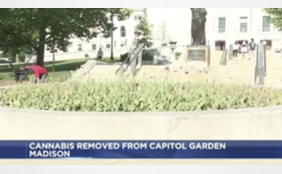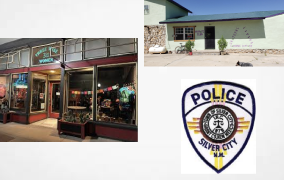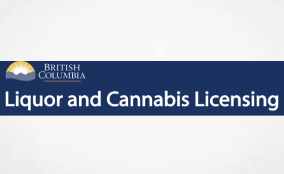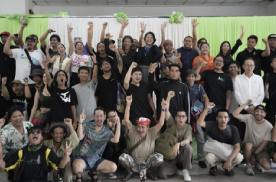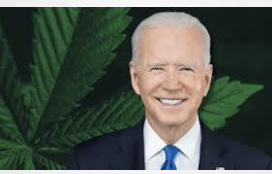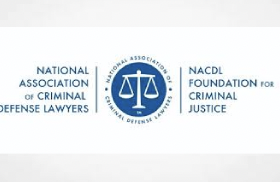The Michigan Marijuana Regulatory Agency (MRA) have announced the details of the state’s Social Equity Program. “The program is designed to encourage participation in the marijuana industry by those in communities that have been disproportionately impacted by marijuana prohibition and enforcement. “
The Cannabis Legal Group reports……….Over the last several months, the agency sought input from approximately 150 stakeholders in work groups, including Cannabis Legal Group’s founding attorney Barton Morris and associate attorney Jennifer Domingue. An online survey was also distributed to help determine critical criteria the MRA should use to identify disproportionately impacted communities, which resulted in identifying the following 19 communities:
- Albion
- Benton Harbor
- Detroit
- East Lansing
- Ecorse
- Flint
- Highland Park
- Hamtramck
- Inkster
- Kalamazoo
- Mt. Morris
- Mt. Pleasant
- Muskegon
- Muskegon Heights
- Niles
- Pontiac
- River Rouge
- Saginaw
- Ypsilanti
While the finalized social equity plan has yet to be released, here are a few key details included in the plan:
1. Application Assistance and Coordinating Resources
The MRA’s team of social equity representatives will visit the 19 communities listed above multiple times before the agency begins taking applications on November 1, 2019. The MRA’s social equity representatives will:
- Answer questions regarding the adult-use application and licensing process
- Provide one-on-one assistance with completing the licensure application
- Compile educational resources relevant to the marijuana industry and help coordinate applicants’ use of the resources
- Identify resources at other state agencies and in the private sector (attorneys, accountants, etc.) that qualifying applicants can utilize to answer questions
2. Reduced Fees
Those who qualify for the Social Equity program benefit from significant reductions off the application fee, the initial license fee and future renewal fees. This will be calculated as follows:
- 25% reduction for those who have been a resident of one of the 19 disproportionately impacted communities for the past five years
- An additional 25% reduction if the individual(s) holding majority ownership have been a resident of one of the 19 disproportionately impacted communities for the past five years AND have a marijuana-related conviction.
- An additional 10% reduction if the individual(s) holding majority ownership have been a resident of one of the 19 disproportionately impacted communities for the past five years AND were registered as primary caregivers for at least two years between 2008 and 2017.
3. Social Equity Program Resources
The MRA will make multiple resources available to disproportionately impacted communities and individuals who qualify for the Social Equity Program. These include, but are not limited to, the following:
- Treasury
- Environment, Great Lakes and Energy (EGLE)
- Bureau of Fire Services
- Wage & Hour
- Corporations, Securities & Commercial Licensing
- Michigan Department of Health and Human Services (DHHS)
- Michigan Occupational Safety & Health Administration (MIOSHA)
Additionally, the MRA has partnered with medical facility licenses and individuals from the private sector to provide educational presentations to – and act as resources – to Social Equity Program participants. To learn more about this and other Social Equity Program details, read the full press release.
FULL PRESS RELEASE
Michigan’s Marijuana Regulatory Agency Announces Social Equity Program Details
Media Contact: LARA Communications 517-335-LARA (5272)
Email: mediainfo@michigan.gov
July 18, 2019 – Today, the Marijuana Regulatory Agency (MRA) announced the details of its Social Equity Program, which is designed to encourage participation in the marijuana industry by people who live in the 19 Michigan communities which have been disproportionately impacted by marijuana prohibition and enforcement:
Albion
Benton Harbor
Detroit
East Lansing
Ecorse
Flint
Highland Park
Hamtramck
Inkster
Kalamazoo
Mt. Morris
Mt. Pleasant
Muskegon
Muskegon Heights
Niles
Pontiac
River Rouge
Saginaw
Ypsilanti
“A lot of work has gone into the development of this program and we are proud of the results,” said MRA Executive Director Andrew Brisbo. “I believe that our Social Equity Program will lead the nation in accomplishing the social equity objectives that Michigan voters assigned us last fall when they passed the adult-use marijuana proposal.”
Section 8 of the Michigan Regulation and Taxation of Marijuana Act (2018) requires the MRA to develop “a plan to promote and encourage participation in the marijuana industry by people from communities that have been disproportionately impacted by marijuana prohibition and enforcement and to positively impact those communities.”
Over the last several months, the MRA solicited input from stakeholders in work groups (150 participants) and an online survey (688 responses received) to help determine the most important criteria the MRA should use to identify disproportionately impacted communities and the most important services that should be offered. The input also helped determine which criteria should be used to identify individuals who qualify for the services as well as what services the MRA should offer to the qualifying individuals.
From the results, the MRA developed a Social Equity Program that identifies communities as eligible using (1) marijuana-related convictions and (2) poverty rate. Counties in which the total number of marijuana-related convictions exceeded the average marijuana-related conviction rate for the state were selected. From that group, communites were selected in which 30% or more of the population live below the federal poverty level.
Application Assistance and Coordinating Resources
The MRA’s team of social equity representatives will visit the 19 disproportionately impacted communities multiple times before the MRA begins taking applications on November 1, 2019.
During the visits, the MRA will provide educational sessions regarding the Social Equity Program and the application and licensure process. The MRA’s social equity representatives will be available to assist individuals with completing the social equity application during the educational sessions, which will allow the MRA to determine if the individual qualifies for participation in the program.
The MRA’s social equity representatives will provide the following services:
- Answer questions regarding the adult-use application and licensing process
- Provide one-on-one assistance with completing the licensure application
- Compile educational resources relevant to the marijuana industry and help coordinate applicants’ use of the resources
- Identify resources at other state agencies and in the private sector (attorneys, accountants, etc.) that qualifying applicants can utilize to answer questions
Reduced Fees
Participating in the Social Equity Program allows qualifying applicants whose marijuana establishments will be located in disproportionately impacted communities to benefit from a reduction of up to 60% off the application fee, the initial license fee, and future renewal fees, which will be calculated as follows for qualifying applicants:
- 25% reduction for those who have been a resident of one of the 19 disproportionally impacted communities for the past five years
- An additional 25% reduction if the individual(s) holding majority ownership have been a resident of one of the 19 disproportionally impacted communities for the past five years AND have a marijuana-related conviction.
- An additional 10% reduction if the individual(s) holding majority ownership have been a resident of one of the 19 disproportionally impacted communities for the past five years AND were registered as primary caregivers for at least two years between 2008 and 2017.
Social equity representatives will confirm eligibility for participation in this program through acceptance of several forms of documentation.
Social Equity Program Resources
The MRA will make resources available to disproportionately impacted communities and individuals who qualify for participation in the Social Equity Program.
The MRA has partnered with other State agencies who offer services that are relevant to individuals or businesses participating in the adult-use marijuana industry. These include, but are not limited to, the following:
- Treasury – understanding tax requirements and making tax payments
- EGLE – understanding and complying with relevant environmental laws
- Bureau of Fire Services – understanding pre-licensure inspections
- Wage & Hour – worker compensation, wage requirement/benefits, employee benefits
- Corporations, Securities & Commercial Licensing – business registration
- DHHS – Safe use of marijuana products and compliance with the Smoke Free Air Law
- MIOSHA – safety and health education training
The MRA has partnered with medical facility licensees and individuals from the private sector to provide educational presentations to – and act as resources for – applicants who qualify for the Social Equity Program. This includes, but is not limited to the following:
- Educational presentations by medical facility licensees on how their marijuana businesses are operated
- Potential mentorships with medical facility licensees who enter the Adult – Use market
- Educational presentations and consultations with certified public accountants who service the marijuana industry
- Educational presentations and consultations with attorneys who service the marijuana industry
